24: soil orders
1/25
There's no tags or description
Looks like no tags are added yet.
Name | Mastery | Learn | Test | Matching | Spaced |
|---|
No study sessions yet.
26 Terms
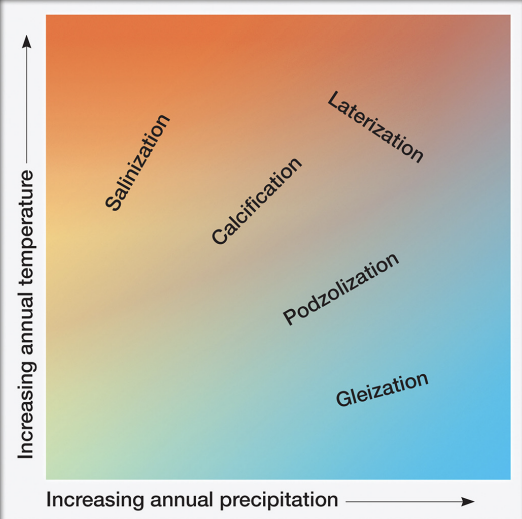
pedogenic processes
environmental settings with certain processes are more dominant
processes occur along a precipitation and temperature gradient
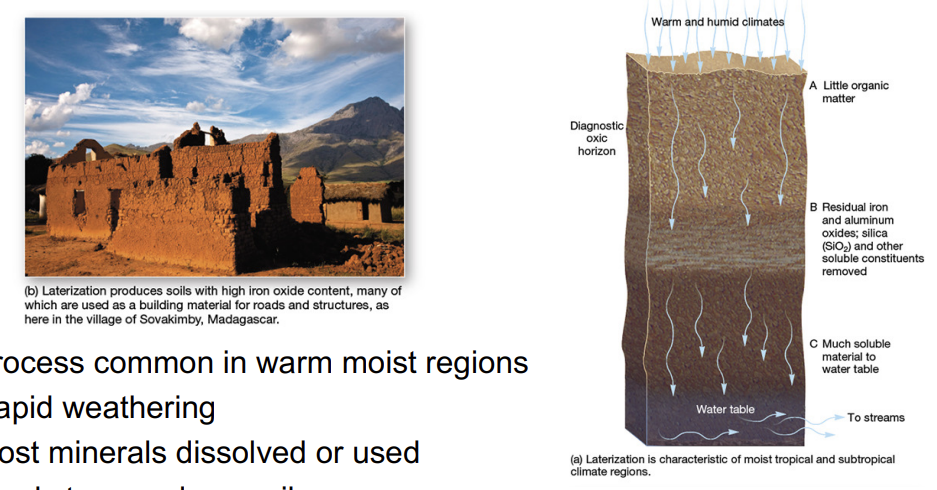
lateralization location and soil
tropics, oxisol
common in warm moist regions; rapid weathering; most minerals dissolved or used; leads to very deep soils
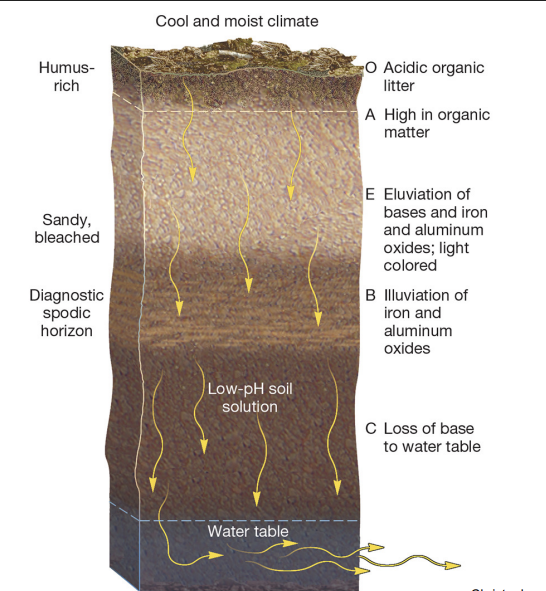
podzolization location and soil
high latitudes, spodosol
produces gray soils (like ash); requires precipitation and acidic soils; common throughout boreal forests

gleziation location and soil
poles, gelisol
applies to waterlogged soils; anaerobic environment due to no oxygen; reduction of iron and manganese produces gray color
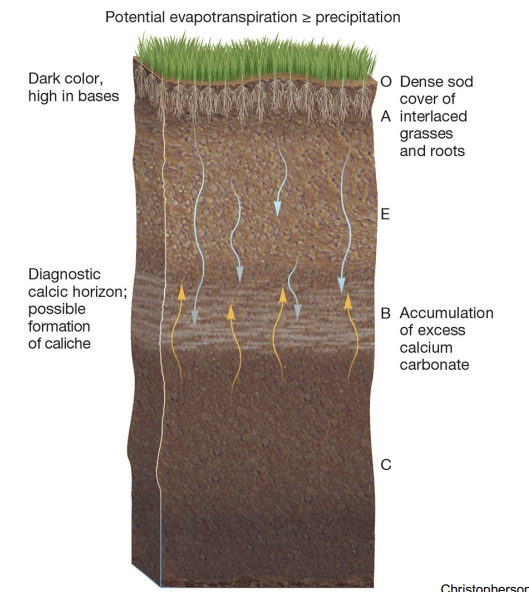
calcification location and soil
grasslands, mollisol
occurs where P < PET and grasses dominate; calcium salts precipitate into soil; white streaks/flecks appear
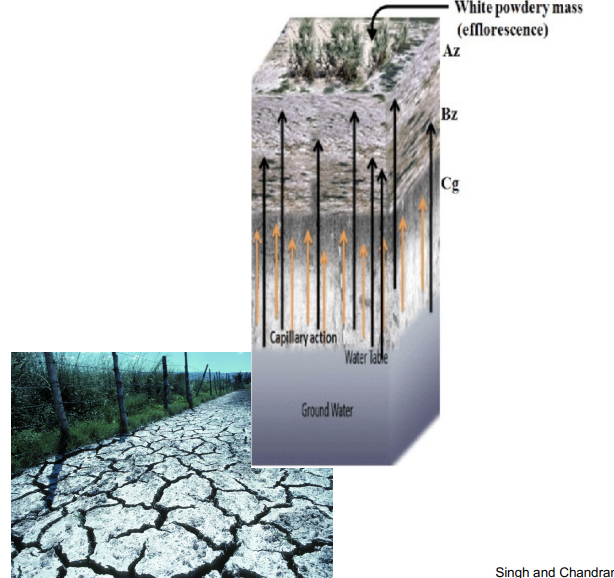
salinization location and soil
deserts, aridisol
pet > precipitation; dry climate; water moves up by capillary action; solutes transported from bottom to top
soil taxonomy
aridisol
andisol
mollisol
alfisol
ultisol
oxisol
spodosol
gelisol
entisol
inceptisol
histosol
vertisol

aridisol characteristics
DRY SOILS; occur in deserts; second most common soil globally (1/8th of planet); thin soil, little development, low organic matter

mollisol characteristics
ORGANIC RICH DARK, soft soils formed by grasslands;
pet > p leads to calcium accumulation beneath surface
up to 80 cm organic matter
very fertile may need irrigation
dry climate facilitates accumulation

alfisol characteristics
ALUMINIUM AND IRON RICH;
midlatitude deciduous forests
light e horizon; strongly weathered
thick clay-rich b horizon; can be fertile for agriculture

ultisol characteristics
ULTIMATE LAST SOIL (highly weathered)
common in tropics and subtropics; some iron oxidation

oxisol characteristics
OXIDE RICH, most weathered soil; strong oxidation and leaching; goethite common; thick tropical soils; mostly infertile

spodosol characteristics
ASH LAYER
occurs in forests with acidic leaf litter (boreal forests)
well-defined e horizon
leached components accumulate in b horizon
acidic, not fertile

gelisol characteristics
GELI = FROZEN SOIL
high latitudes. little development
vertical structure from cryoturbation
permafrost common
can be highly organic-rich

entisol characteristics
ENTI = NEW SOIL
very little development
no b horizon; extremely diverse

inceptisol characteristics
INCEPTI: YOUNG SOILS
inception of b horizon; horizons beginning to form

histosol characteristics
HISTO: ORGANIC TISSUE RICH accumulation of organic residues waterlogged soils prevent respiration ranges from peat to muck
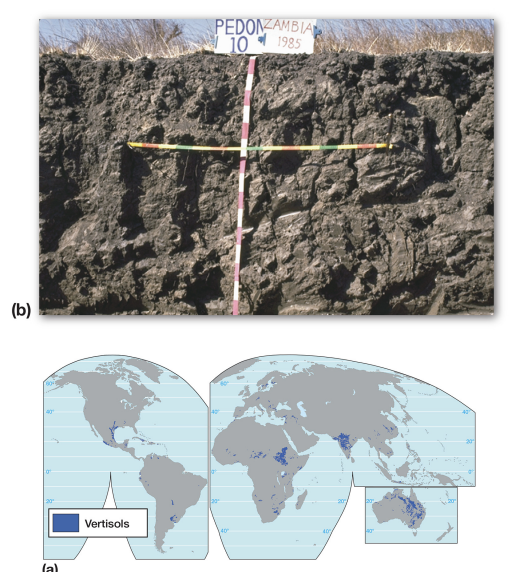
vertisol characteristics
VERTI: SHRINK AND SWELL
clay-rich soils that shrink and swell
poor for construction; can form slickensides

andisol characteristics
ANDI: VOLCANIC SOILS
develop from volcanic parent material
light, organic-rich, high water-holding; highly fertile
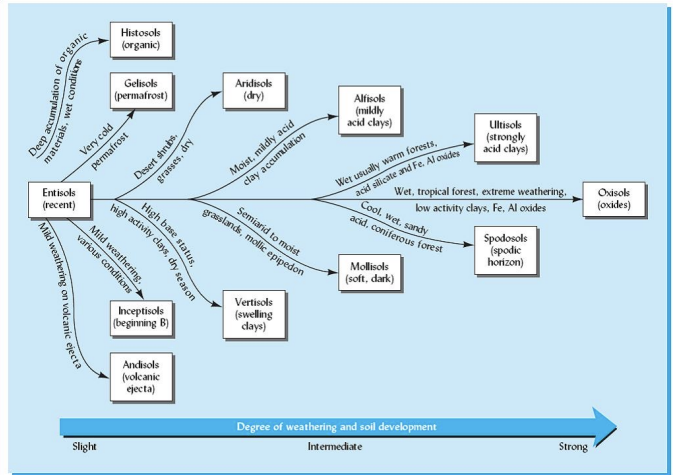
arranging soils by weathering
weathering intensity increases with warmer and wetter climates; dry conditions limit development; anaerobic conditions promote organic matter accumulation
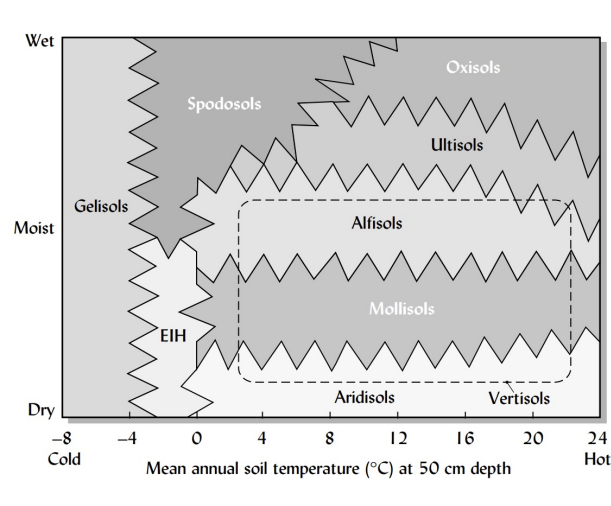
arranging soils by latitude
tropics: warmer, more precipitation, thicker soils; dry subtropics: thin soils; midlatitudes: moderate thickness

permafrost definition
soil permanently frozen for at least two consecutive years
permafrost importance
carbon storage; methane source; highly sensitive to climate
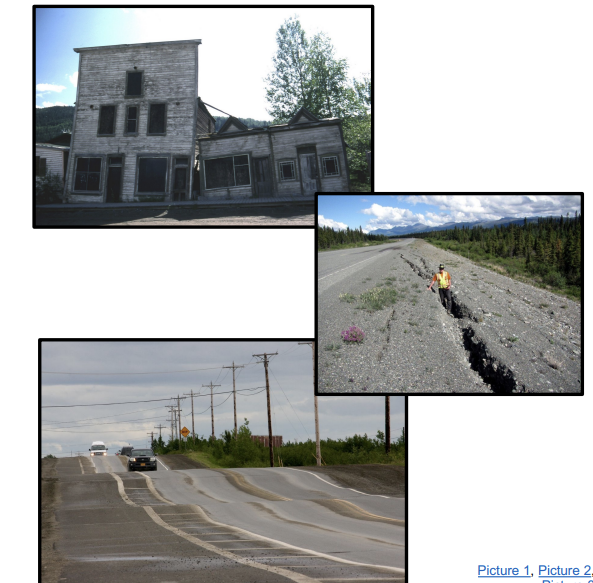
permafrost landform impacts on humans
structures fall apart as permafrost melts; roads crack; coastal erosion increases as permafrost weakens soil

human impacts on soil
great dustbowl
conversion of grasslands to agriculture; overgrazing and intensive agriculture degrade soils; drought + wind cause topsoil loss and dust storms
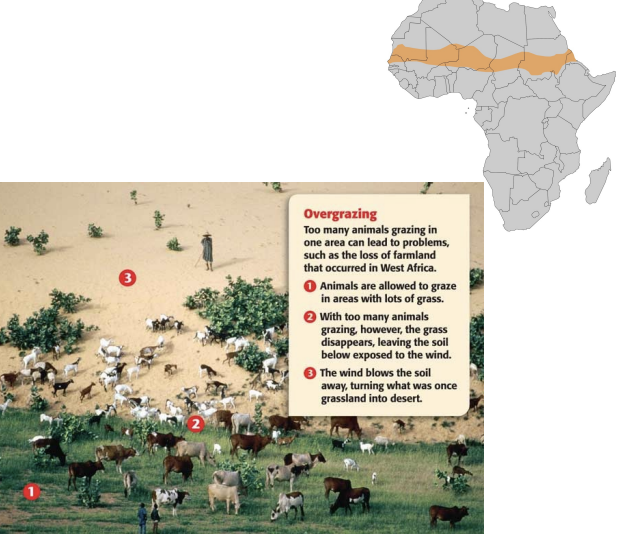
desertification of the sahel causes
loss of topsoil due to population growth, overgrazing, deforestation